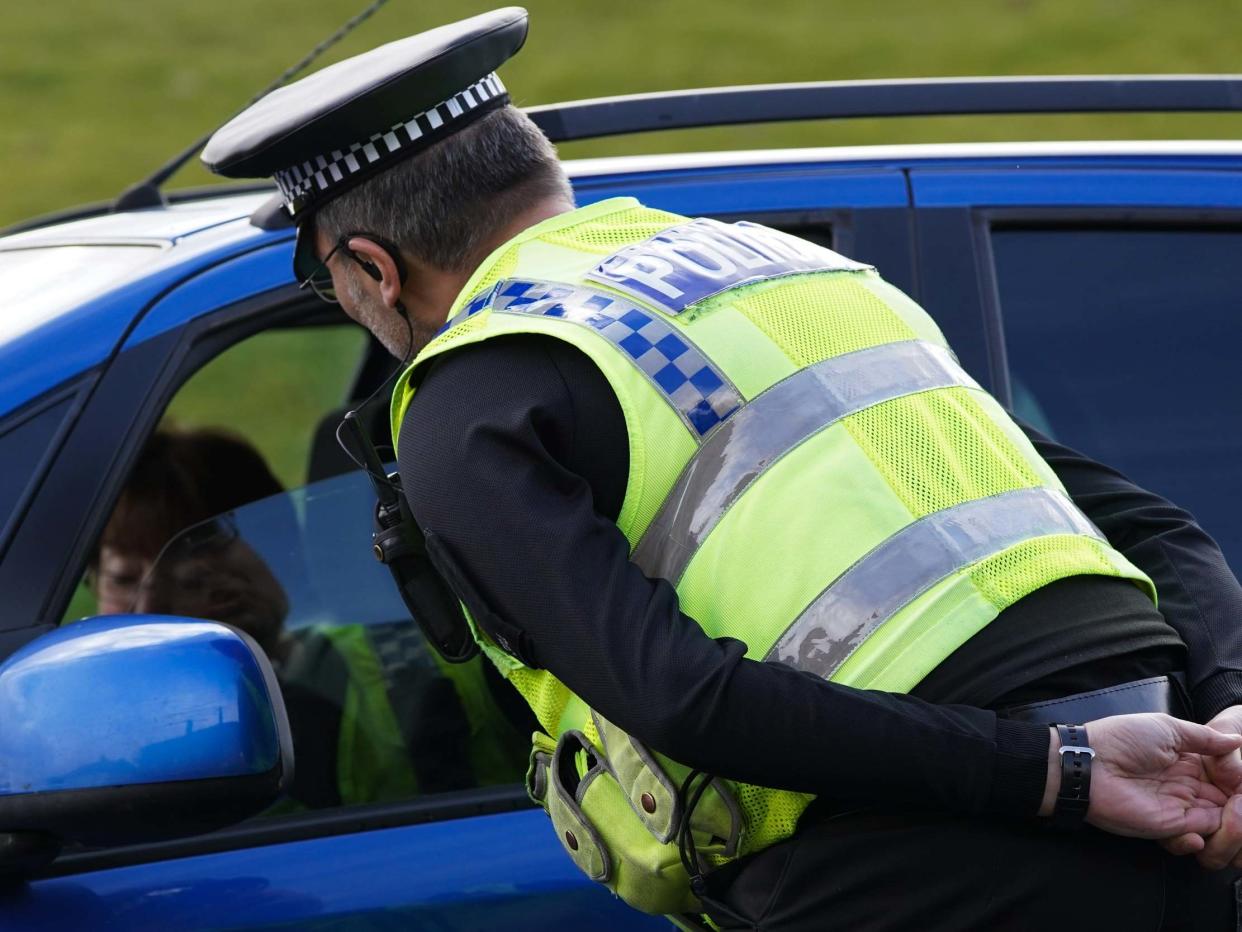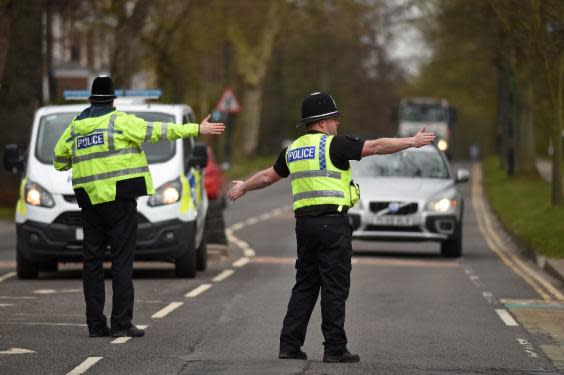Coronavirus: Police ‘in the dark’ about Boris Johnson’s lockdown announcement, senior officer says

The vast majority of police officers did not know that Boris Johnson was going to announce a nationwide lockdown in response to the coronavirus outbreak, and learned about it at the same time as the public, a senior officer has said.
While national police leaders were informed of the impending measures shortly before the prime minister’s address to the nation on 23 March, there was no time to pass the message down to the rank and file.
Mr Johnson told the public that if they did not follow the rules, "the police will have the powers to enforce them", but the law did not yet exist.
Kerrin Wilson, assistant chief constable of Lincolnshire Police, told The Independent: “We were in the dark and waiting for that [announcement] as the rest of the country were.
“Not knowing what was coming, I had officers asking the same questions a lot of the public were asking.
“Our officers and staff were in the same boat as the rest of the community about what it meant for them.”
The Independent understands that police leaders had been in discussions with the government about a potential lockdown and any new laws that would be needed to enforce it, but that the move was not confirmed until a Cobra committee meeting held just hours before Mr Johnson’s announcement.
A communication was sent out to chief constables, who had been told in advance that the measure was on the table.
Ms Wilson, who leads Lincolnshire Police’s response to the coronavirus, said that after Mr Johnson had spoken, the force – like many others – received "a huge amount of calls” from people asking about the scope of the restrictions.
People have also been calling police to report their neighbours for allegedly violating the rules.

Officers initially directed the public to the government guidance, but new health-protection laws that came in three days later were not as strict on exercise and travel.
The lack of initial clarity caused the 43 police forces in England and Wales – who operate independently of each other and the government – to significantly diverge in their responses.
While some used drones to film walkers and set up roadblocks, others merely told officers to explain the new guidance to the public.
Since powers to arrest and fine people for lockdown breaches came into force on Thursday last week, some forces have not used them at all and others have issued more than 100 fines.
Ms Wilson said that Lincolnshire Police was taking a “common sense approach”, adding: “We’re not going into supermarkets and shops and checking what people are buying, we’re not doing roadblocks or stopping vehicles to ask where they’re going.
“Unless government directions come in to say we need to do road checks, or there is intelligence about a gathering, I have no intention of instigating such draconian measures.”
She is one of many senior officers concerned that any backlash over police tactics could permanently damage public relations.
“We’ve spent a long time building up really positive relationships,” Ms Wilson said. “We can’t afford to destroy them at this moment in time because when we come out the other side of Covid-19 we will need to rebuild our society.”
Grant Shapps, the transport secretary, suggested that some forces had gone “too far” on Tuesday, after a former Supreme Court judge compared enforcement of the lockdown to a “police state”.
Derbyshire Police was heavily criticised for using a drone to film walkers in remote countryside before the coronavirus laws came into force.
However, the force's chief constable, Peter Goodman, said he had no regrets and believed “lives will be saved as a consequence” of people being discouraged from travelling to popular beauty spots.
“It's important that we accept in policing we are finding our way in this, and what we are clear about is we're all in this together,” he added.
”So, if we occasionally get things wrong, or people think we get it wrong, then I'm sorry that people think that.”
Guidance has now been issued to all forces by the National Police Chiefs’ Council (NPCC) and College of Policing, which says fines and arrests should be "reserved only for individuals who have not responded to" officers' instructions.
"Use your judgement and common sense," the document tells officers. "For example, people will want to exercise locally and may need to travel to do so, we don’t want the public sanctioned for travelling a reasonable distance to exercise. Road checks on every vehicle is equally disproportionate."
In briefings with senior officers, constables have been told to engage the public, explain the rules and encourage them to follow them voluntarily before moving to any enforcement action.
NPCC chair Martin Hewitt wrote to police chiefs over the weekend stressing that arrests and fines should be a last resort.
Appearing on BBC Radio 4’s Today programme on Tuesday, he said: “We will constantly be striving to achieve that level of consistency and we will be looking at the way the issues are being dealt with and the good practice as well as things we think maybe we wouldn't want to do in that way.
“But we are going to have to learn as we go along because this is very challenging, the measures are unprecedented for anybody to be dealing with, both for the public and the police.”
Mr Hewitt previously said the “vast majority of the public” had changed their behaviour, adding: “We all need to recognise that the whole country, police as well as the public, are coming to terms with a huge change to our lifestyles and we are being asked to enforce some of the most restrictive conditions that have ever been placed on a population by the government.”
Read more
When can we really expect coronavirus to end?
Everything you need to know on supermarket delivery slots
The dirty truth about washing your hands
Which countries around the world has coronavirus spread to?
Listen to the latest episode of The Independent Coronavirus Podcast
Coronavirus lockdown leaves police grappling with unprecedented powers
Police told to arrest public for breaking lockdown as ‘last resort’
Coronavirus lockdown likened to 'police state' by former judge

 Yahoo News
Yahoo News 
